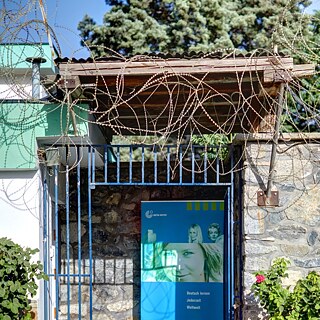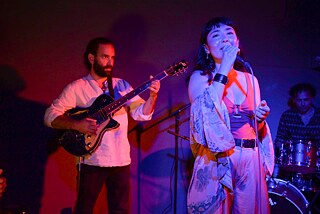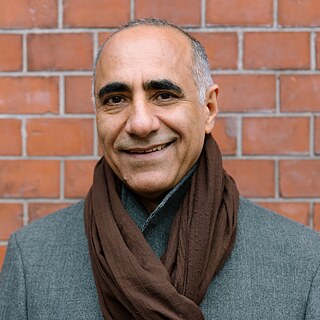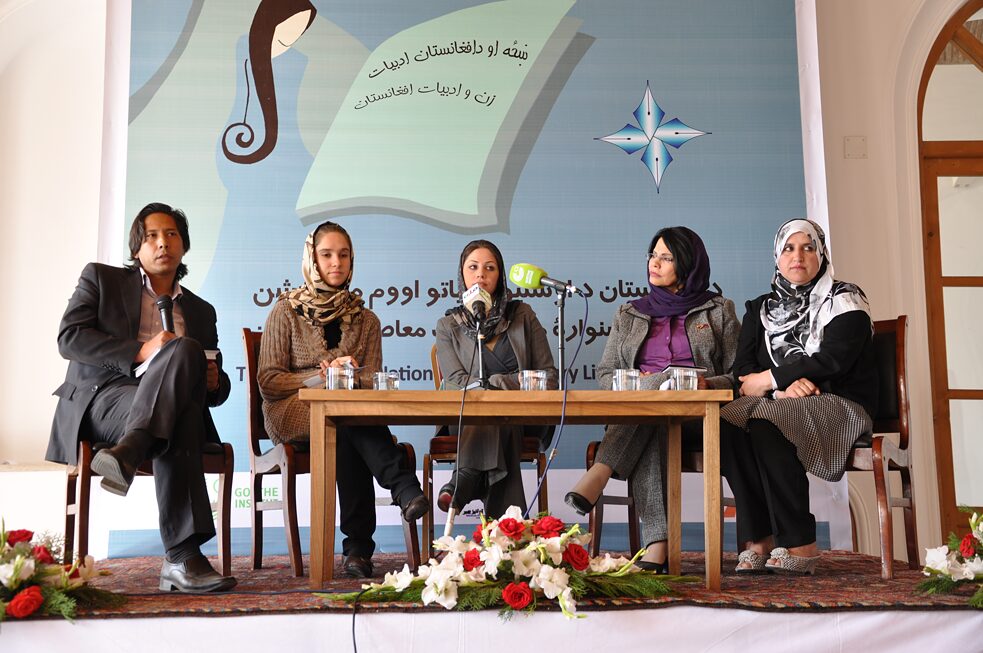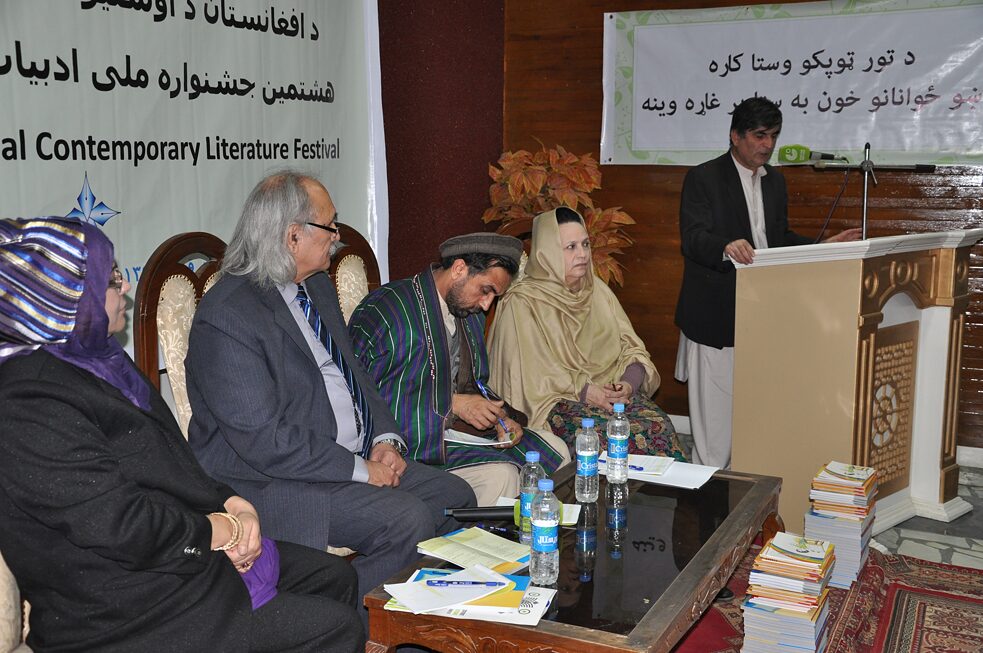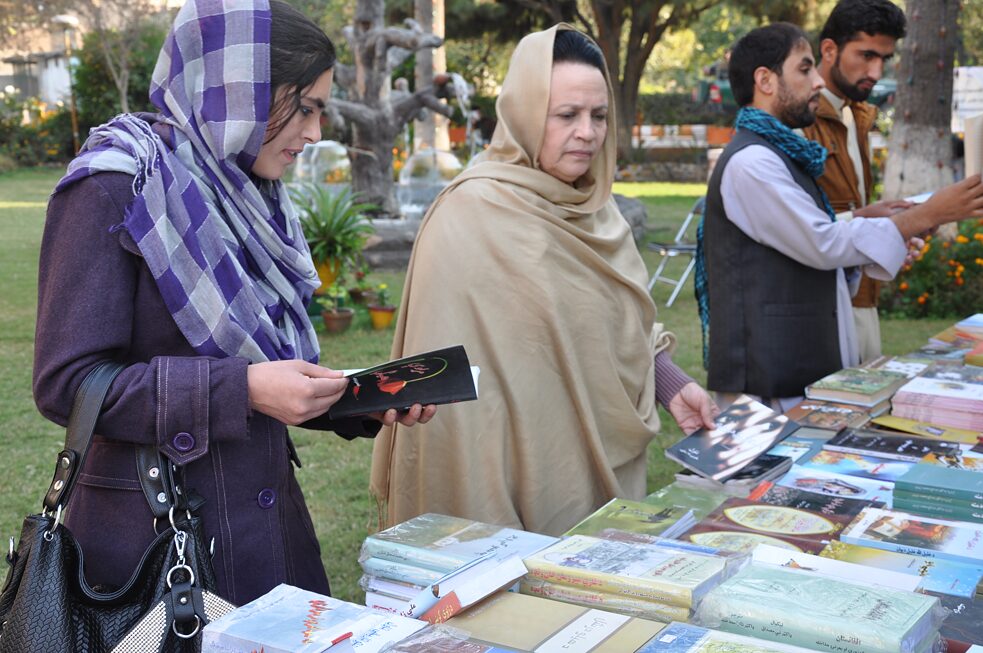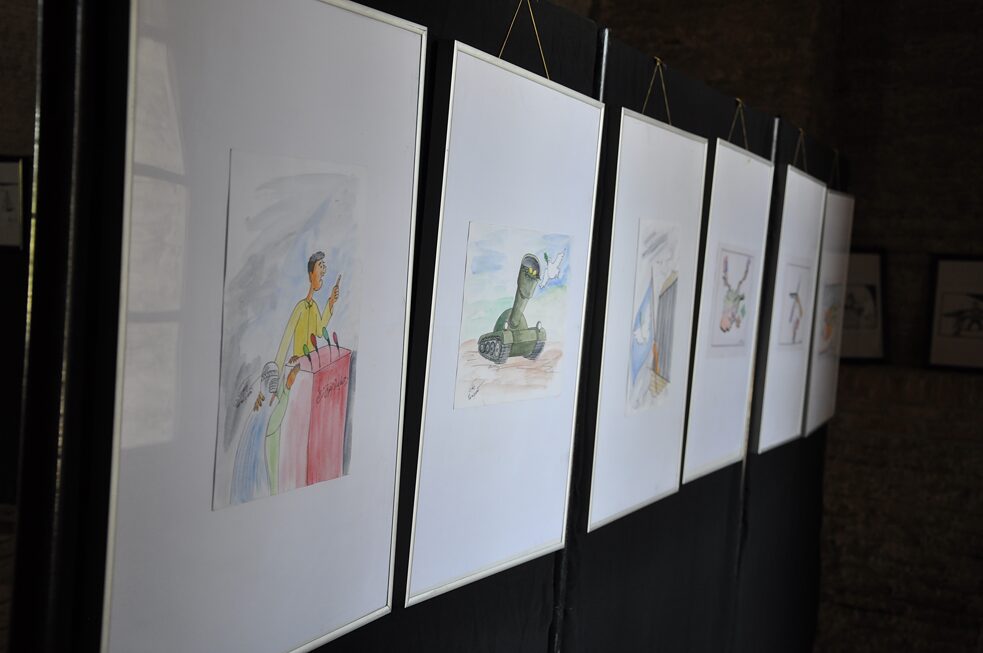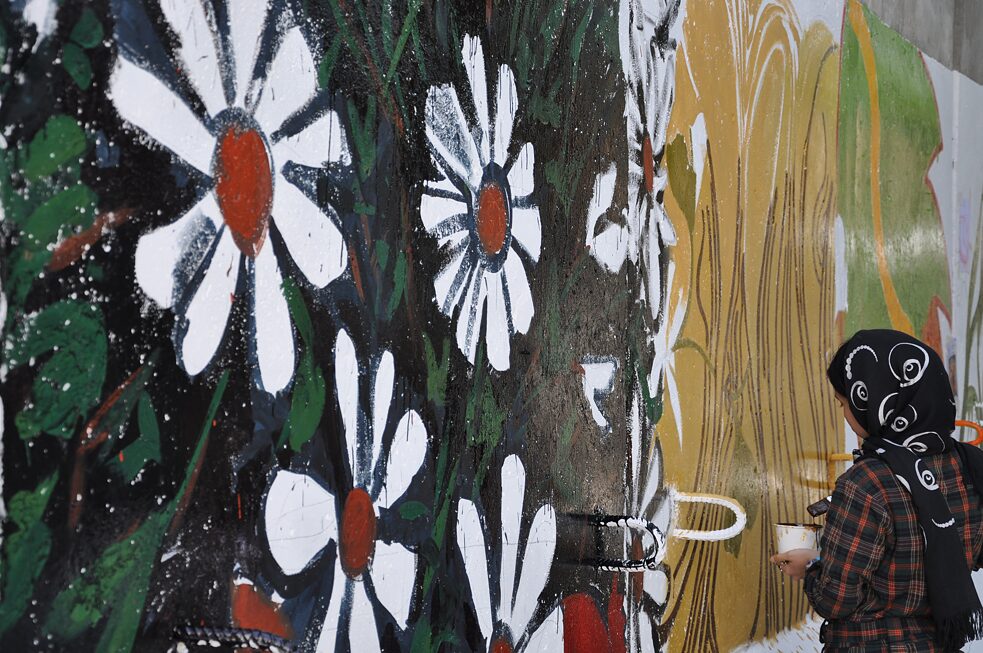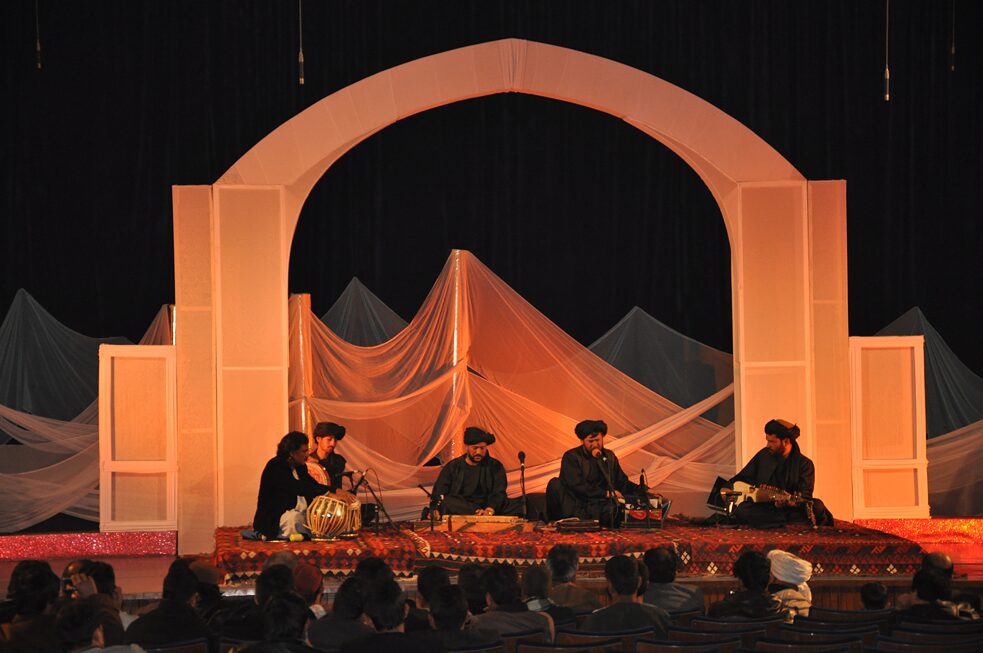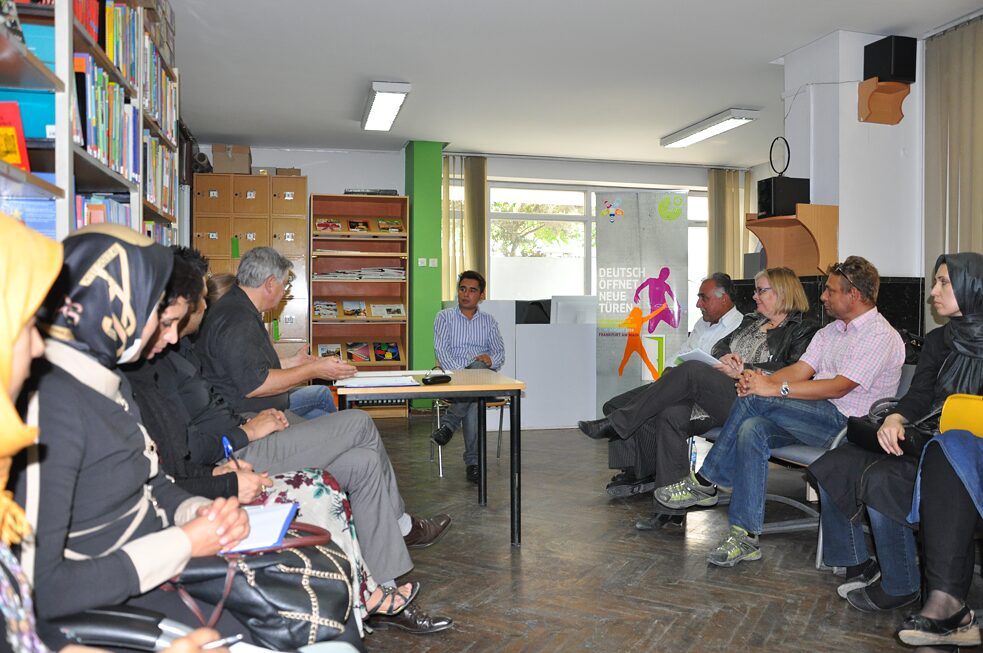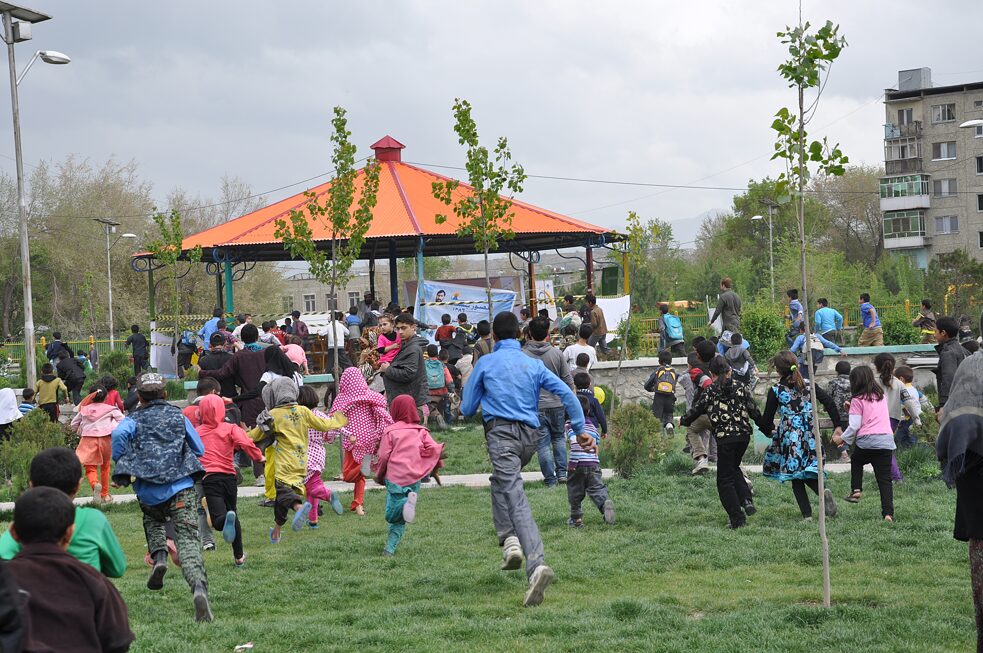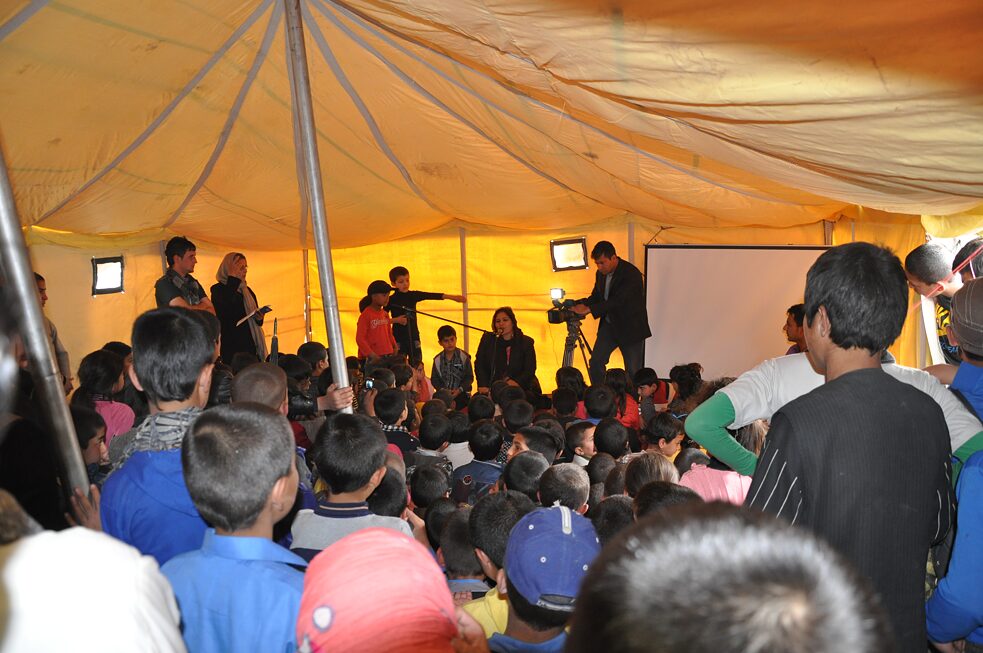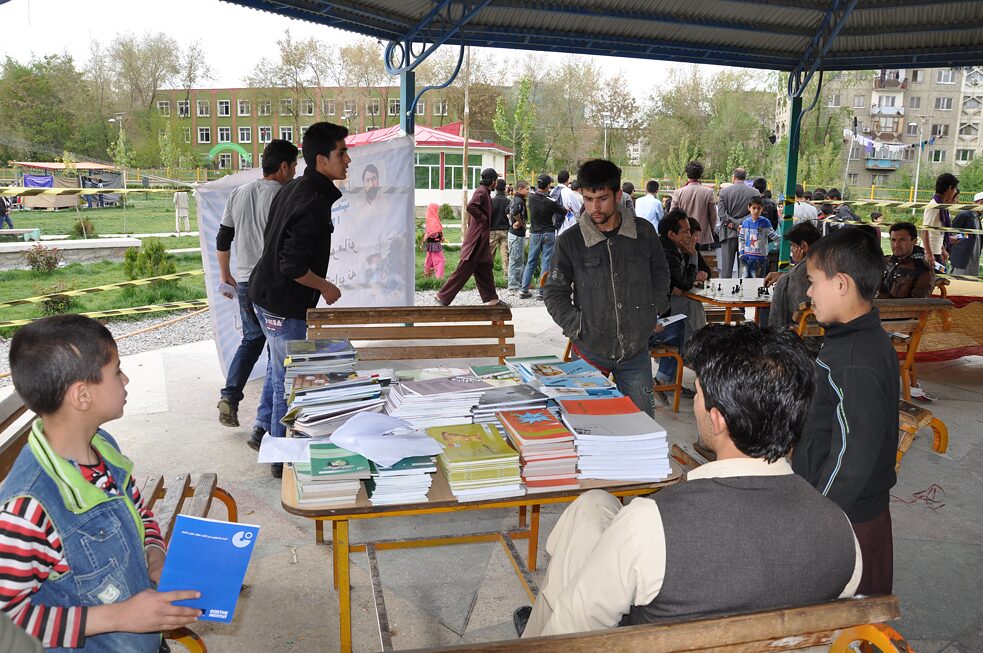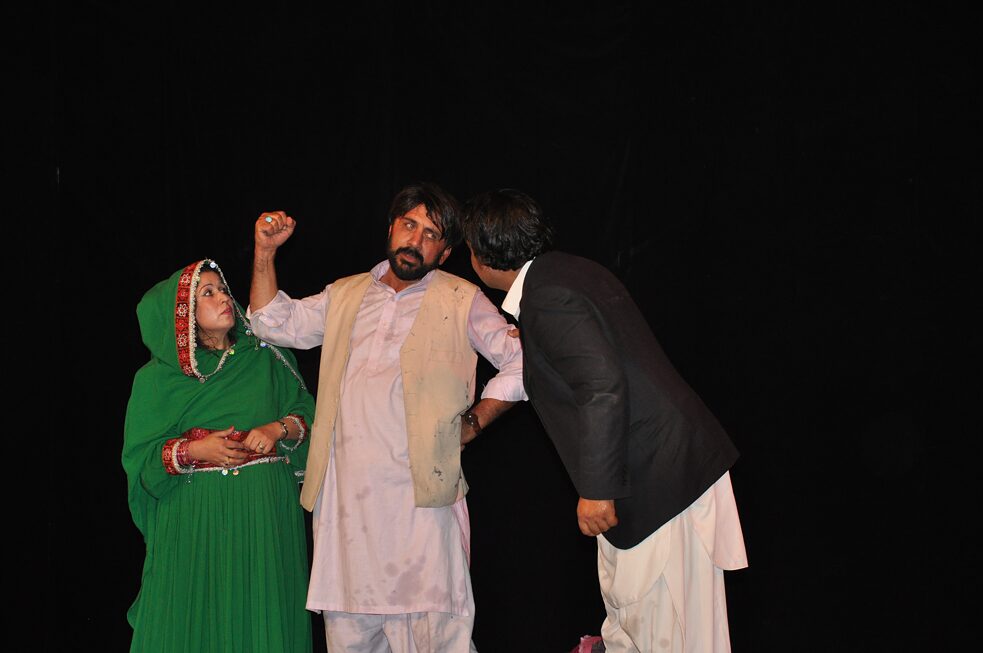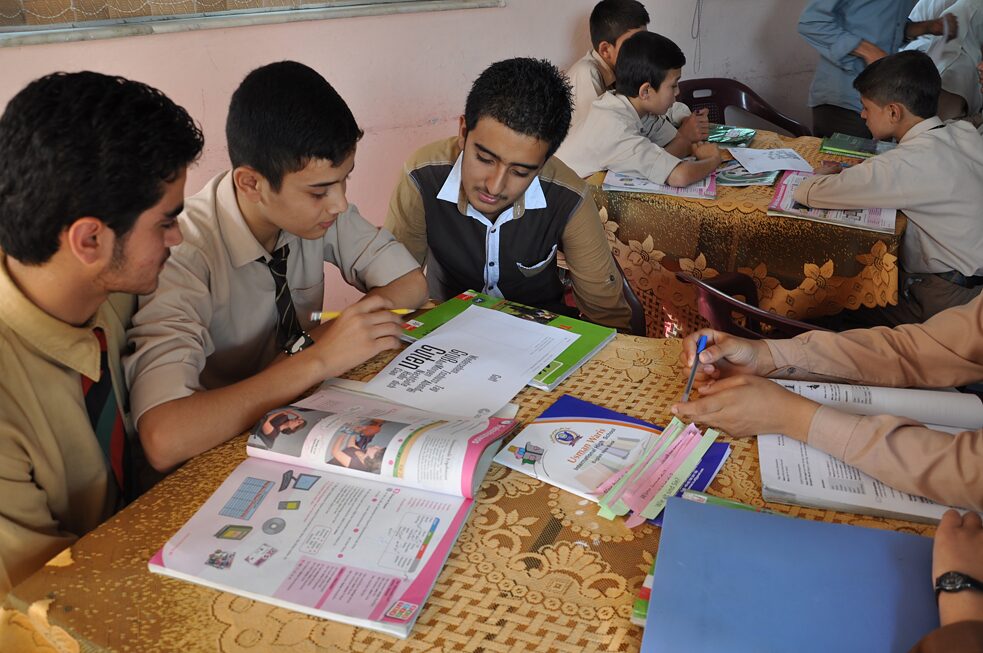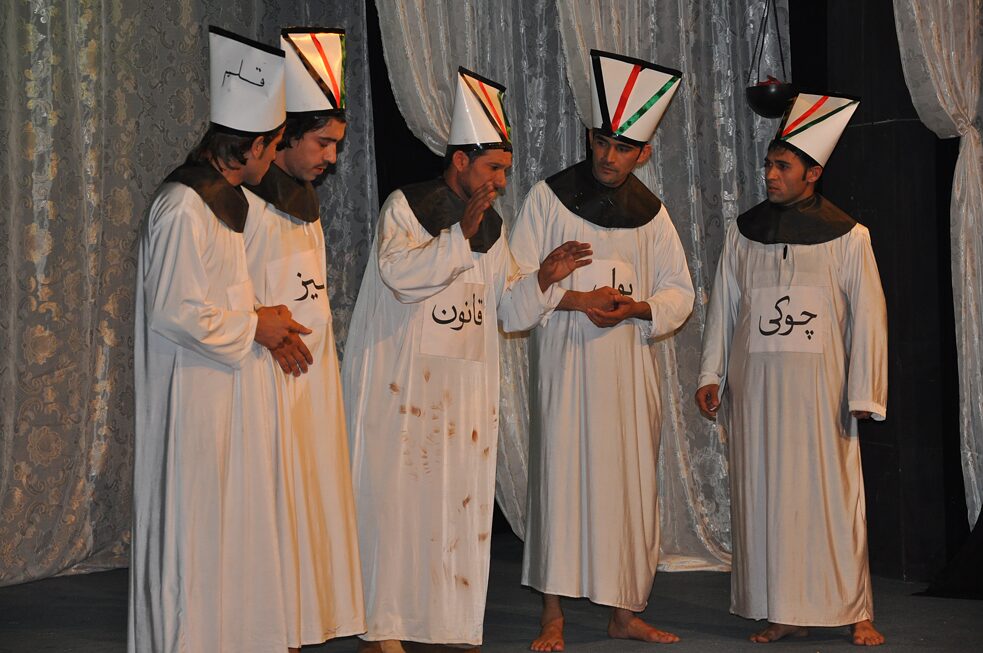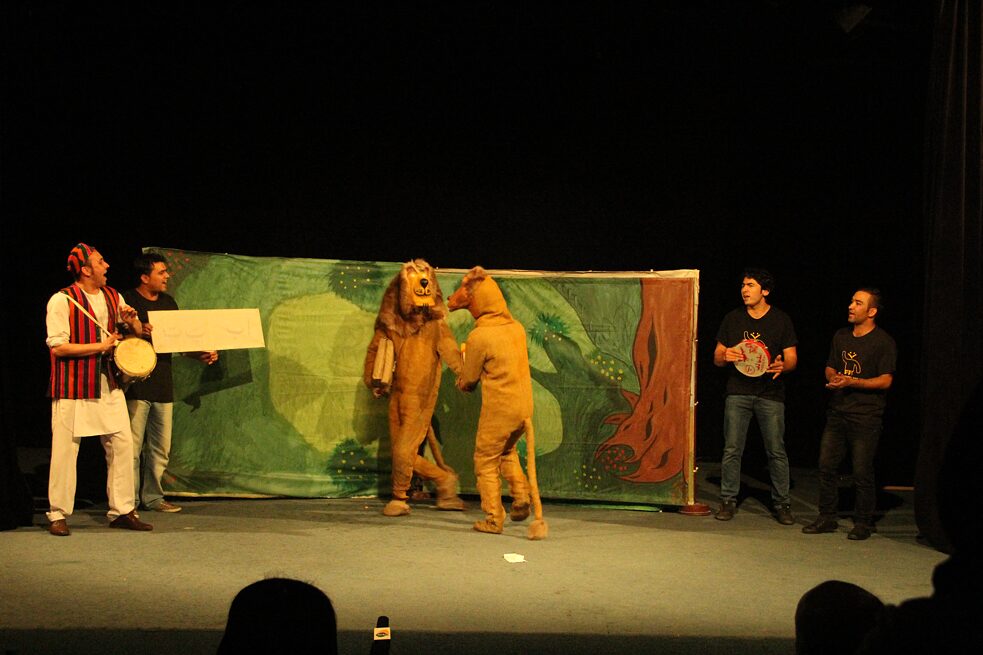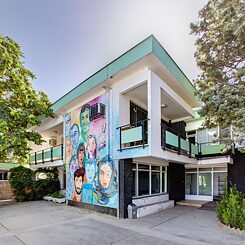 © Goethe-Institut
© Goethe-Institut
The Goethe-Institut Kabul, founded in 1965, had to cease its activities in 1991 before the invasion of the Mujahideen. Until its closure, the Goethe-Institut Kabul was a well-known and popular place for meetings, exchange and cultural events.
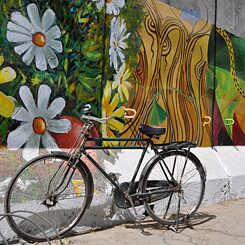 Foto: Masoud Hotak © Goethe-Institut
Foto: Masoud Hotak © Goethe-Institut
After the end of the first Taliban regime in 2001, the first on-site research for the resumption of work began in February 2002. In September 2003, the Institute was reopened in the former residence of the then GDR Embassy. With the occupation of its own building and the secondment of additional staff, the Institute resumed its activities in all areas o
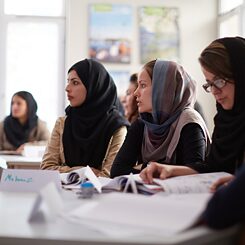 Masoud Hotak © Goethe-Institut
Masoud Hotak © Goethe-Institut
The Goethe-Institut Afghanistan supported the then still existing cultural scene in its reconstruction and also promoted the emergence of new cultural practices - for example, the fields of contemporary literature, animated films and puppet theatre.
The institute was located on the grounds of the German Embassy. In an attack on it in 2017, the institute was severely damaged and had to stop work as a result. The Taliban have been in power again since 15 August 2021.
